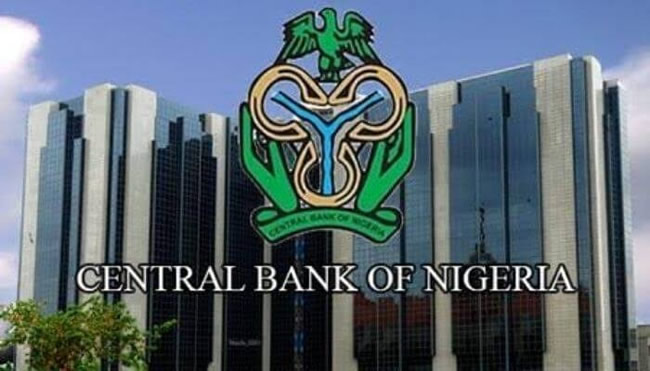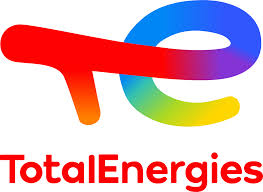Nigeria’s foreign exchange reserves rose sharply to $41.00 billion on August 19, 2025, the highest level since 2021, Data from the Central Bank of Nigeria (CBN) indicated.
Daily Trust reports that this was the first time the external reserves would witness this highest accretion since December 2021.
Daily Trust reports that the month of August has witnessed consistent accretion with the reserve adding about $1.46 billion month-to-date, from $39.54 billion on 1 August before it hit $41.00 billion by 19 August.
SPONSOR AD
This represents a 3.69% growth in less than three weeks.
Implication for Nigeria
The increase in reserves was driven largely by rising forex inflows and marginal increase in crude oil output. According to the latest figures published on the Central Bank of Nigeria (CBN) website, the gross reserves moving average stood at $39.3 billion on August 1, and reached $39.5 billion on August 6, and hit $40.2 billion on August 8 before the present figure.
The sustained reserves accretion, decline in inflation rate, commodities prices dip as well as long-term naira stability, according to analysts are all positive fallout of the ongoing economic reforms instituted by the federal government.
The stability being witnessed in the economy comes with multiple benefits to businesses, households and the overall economy.
One of the biggest beneficiaries is the foreign reserves, which have stayed above $40 billion for nearly two weeks before the current data.
The moving average of the gross reserves showed a $39.3 billion position on August 1, reached $39.5 billion on August 6, grew to $40.2 billion on August 8. By August 11, the gross reserves stood at $40.65 billion before hitting $40.72 billion on August 13.
It would be recalled that Nigeria’s reserves opened the year at $40.88 billion on 31 December 2024. At the latest print of $41.00 billion, this translates to an increase of about $124 million or 0.30%.
In other words, most of the 2025 gains have been concentrated in the past five weeks, following a relatively subdued first half of the year.
Between January and June, reserves largely fluctuated within the $37 billion to $39 billion range, reflecting FX market interventions, oil price swings, and debt service obligations.
For instance, reserves dipped to $37.28 billion in early July before the recent rebound. The sharp turnaround since mid-July has therefore added over $3 billion, a growth of about 8% within just a month.
From a longer horizon, the $41 billion recorded puts Nigeria in its strongest external reserve position since late 2021. The recent improvement is significant given the prolonged drawdowns that followed through 2022 and 2023, when reserves struggled to hold above $38 billion.
Aside from the reserves, the naira has also seen sustained stability while the inflation rate has continued to decline, closing July at 21.88 per cent.
The July figure represents the fourth consecutive month of decline, compared with 22.22 per cent posted in June, according to figures from the National Bureau of Statistics (NBS).
The latest Consumer Price Index report showed that the July figure was 0.34 percentage points lower than the June rate and 11.52 percentage points below the 33.40 per cent recorded in July 2024.
Oil output rises
Nigeria’s oil output rose 0.67 per cent in July to 1.51 million barrels per day (mbpd), meeting OPEC+’s 1.5 mbpd quota for the third time this year. Although production still falls below the 2025 benchmark target of 2.06 mbpd, a slight increase is anticipated in August, and higher contributions to the reserves are expected.
Analysts say new policies instituted by the Federal Government to boost local production, reduce forex demand pressure, and lessen domestic prices have been instrumental to macroeconomic stability while buoyed by the reforms instituted by the apex bank under Olayemi Cardoso.
The expectations are that the apex bank sustains the forex reforms while the fiscal authority strengthens efforts at enhancing FX earnings, especially from gas, oil and non-oil exports.
The CBN under Cardoso is cultivating multiple FX sources to increase dollar inflows, boost dollar access to manufacturers and retail end users.
From moves to improve diaspora remittances through new product development, the granting licenses to new International Money Transfer Operators (IMTOs), implementing a willing buyer-willing seller FX model, and enabling timely access to naira liquidity for IMTOs, the apex bank has simplified dollar-inflow channels for authorized dealers and other players in the value chain.
The move has led to substantial accretion to the gross FX reserves and supported the stability of the naira.
Diaspora remittances to Nigeria, estimated at $23 billion annually remain a reliable source of forex to the domestic economy. There are also other sources and policies that are being explored by the apex bank to keep dollar inflows coming.
The sharp climb, according to economists, underpins the CBN’s ability to stabilise the naira in the official market, manage liquidity, and defend against speculative pressure.
It will help CBN to defend Naira – Yusuf
Director/CEO, Centre for the Promotion of Private Enterprises (CPPE), Dr. Muda Yusuf said the reserves’ position is a positive signal for Nigeria, saying it would further strengthen the naira.
He said, “The foreign reserve increase is a very good development because it has implications for exchange rate stability, inflation and investors’ confidence.
“So from those perspectives the impact on the economy will be very positive, because both local and foreign investments will have more confidence and a stable and improving reserve.
“It will also help the CBN to defend the Naira, you have seen the volatility in oil prices, ordinarily it would have been fluctuating as a result of that volatility but it has not, so that’s the beauty of having a robust reserve, to support the currency.”
Analysts at Cordros Capital Group said disinflation and improved macroeconomic stability as noticed in improvements in oil production, a relatively stable currency and better financial conditions could stimulate stronger economic activity.
“Food inflation is expected to moderate in July, driven by the improved supply of seasonal farm produce, such as green maize, groundnuts, pumpkins, and vegetables, from the early green harvest. This increased availability is likely to ease price pressures on domestically produced food items, particularly in the southern and middle-belt regions”.
“Nonetheless, persistent insecurity in key food-producing zones in the North continues to disrupt farming and transportation, keeping the broader food supply tight. Imported food inflation may also decelerate, supported by the relative stability of the naira. The reduced exchange rate volatility is expected to lower import costs for processed and packaged food products, helping to contain price increases in that segment,” Cordros Capital stated.
Analysts at Arthur Steven Asset Management stated that prices could continue to fall due to lower energy costs and stability in the forex market.
HighCap Securities noted that reduced currency volatility, improved food supply and logistics cost were perfect combinations for continued decline in inflation rate.
As naira rallies, import costs dip
With improvement in exchange rate, comes reduced cost for import. The naira appreciated significantly last week, strengthening from N1,580 to N1,530 per dollar, a gain of about 3.25 per cent at the parallel markets.
The local currency exchanged at N1,536 per dollar at the official markets, creating N6 per dollar rate gaps between both markets as of yesterday. Importation costs in Nigeria include various taxes and charges, primarily import duties, VAT, and other levies. These costs are calculated based on the CIF value (Cost, Insurance, and Freight) of the goods, which includes the cost of the goods, insurance, and shipping.
The cost, insurance and freight (CIF) price is the price of a good delivered at the frontier of the importing country, or the price of a service delivered to a resident, before the payment of any import duties or other taxes on imports or trade and transport margins within the country.
Changes in exchange rate can significantly impact the cost of imports, as duties and other charges are often calculated based on the prevailing exchange rate.
Nigeria’s total Imports in 2024 were valued at $40.97 billion, according to the United Nations COMTRADE database on international trade. Nigeria’s main import partners were: China, Belgium and India.
New figures from the National Bureau of Statistics (NBS) reveal that Nigerian imported food and beverages worth N1.67 trillion ($1 billion) during the first quarter of 2025 (January–March), reflecting a five per cent increase from the N1.59 trillion recorded over the same period in 2024.
Analysts from Cordros Securities said the naira appreciation helped cushion the impact of the spike in imported fuel prices triggered by tensions in the Middle East.
“We expect FX liquidity to remain robust, supported by reduced global pressures and stronger market confidence, which continues to attract inflows from foreign portfolio investors (FPIs). Additionally, a stronger net FX reserve position enhances the CBN’s capacity to intervene when necessary. Barring any unexpected shocks, we anticipate that the naira will remain stable in the near term,” they said.
The All Progressives Congress (APC), Lagos State Chapter, commended the Central Bank of Nigeria (CBN) and the Federal Government on the remarkable achievement of raising Nigeria’s foreign exchange reserves to a historic high of $41 billion.
“We recognize the bold and decisive actions taken by the CBN, in collaboration with the Federal Government, to stabilize the exchange rate, improve liquidity, and attract foreign direct investment. The rise in forex reserves will provide critical support for the naira, enhance Nigeria’s ability to meet international financial obligations, and strengthen the overall macroeconomic environment,” said APC spokesman, Mogaji Seye Oladejo.
He added, “This achievement also reflects the success of ongoing reforms across key sectors, including oil and gas, financial services, and the non-oil export market. These reforms are already yielding positive results in strengthening Nigeria’s economic fundamentals and positioning the country for sustainable growth.”







